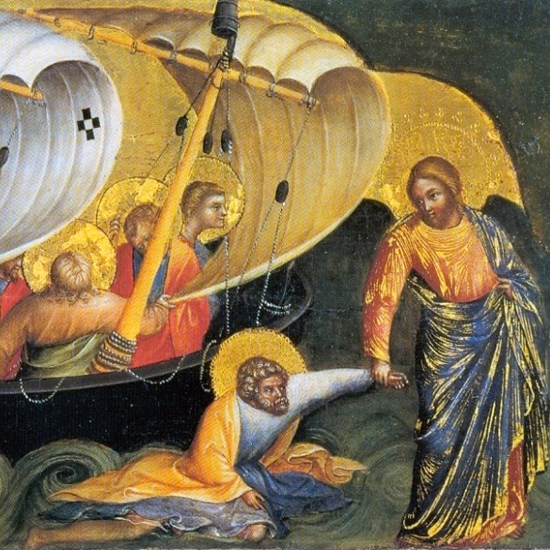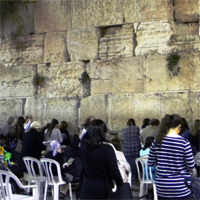I’ve seen the Broadway musical twice. I’m on record in The Commercial Appeal, a Memphis newspaper, as quite liking it. Nevertheless, I think the play is wrong when it sings that Mormons “just believe”. Some Mormons do, no doubt. But I’m not ready to accept that “just believing” is an essential characteristic of Mormon identity. I think beliefs are a red herring.
Mormon VIPs John Dehlin and Patrick Mason (no relation) have exchanged some interesting ideas over in the Mormonism Inside and Out blog concerning the irreducible element of Mormonism. Their conversation has wrangled over the beliefs that characterize Mormonism, and which doctrines can be dismissed without losing something genuinely Mormon altogether.
Mason is probably right to point out that religious people are increasingly putting doctrine and belief behind other things they value, and also right to suggest that the LDS church resists justifying this subordination of doctrine to other things like community and service. (Not that the LDS church doesn’t loudly proclaim its commitment to such things as service. It’s that a commitment to doctrines, rather than to service is what makes one legitimately LDS, these days.)
If we read the waning of the importance of doctrine (and belief) to western religious living as an indication of the inexorable slide of civilization towards a godless future that will demand a second coming, a cleansing by fire, the Antichrist, the Four Horsemen, etc., we could understand LDS-Mormonism’s tight grip on doctrine (and belief) as a fierce commitment to security in the face of disaster. But we can just as easily read the slow death of doctrine as a return to a more genuinely religious mode that held sway over western religion for far longer than have doctrine and its attendant belief.
The significance of doctrine as the essential characteristic of religion—certainly in the case of western Christianity—came into being relatively recently, and the gradual disappearance of doctrine’s significance is not a radical transformation of religion but simply a return to really old-timey religion in which belief played a negligible role.
When the Enlightenment elevated the value of empiricism, religion made the mistake of trying to bind itself to facts—historical, temporal, ‘scientific’ facts—in its attempt to sustain its relevance. Like everything else, went the careful reasoning, religion must have reason in it. The ‘evidence’ on which religious reason rested became the poetic, imaginative figures of scripture, re-conceived as historical accounts and catalogs of hard data, and ‘belief’ came to parallel the same certainty that science demanded—an uncompromising commitment to what the evidence offers. In western Christianity, then, resurrection became a historical, material event. The earth became five or six thousand solar years old. The so-called rapture became an honest-to-goodness hoisting of the saved into the sky. The modern west, then, inherited from the nineteenth century a concept of religion as a purveyor of unassailable ‘fact’, from which has been born self-serving fundamentalist horrors like Terry Jones, Jerry Falwell, Jr., and Bruce McConkie.
The point being: for a long time, perfectly sound Christians were not troubled by the labor of believing dogmatic declarations, and it was an error of Enlightenment judgment that set us on the path towards insisting that religion provides a scientifically factual truth to which we must commit our minds, come what may.
The argument over which beliefs are essential to Mormonism and which beliefs can (or must) go, therefore, seems to me the wrong argument. I disagree with the other Mason that Mormonism is, essentially, a doctrinal religion. As an assessment of the historical understanding of LDS-Mormonism by adherents over the past hundred and eighty years or so, perhaps he’s right. Certainly, the LDS church works very hard these days to ensure at least token assent to certain doctrines as a sign of legitimacy within the community.*
But Dehlin’s forceful responses show how unconvincing is the assertion that a person who would be Mormon must commit to this or that doctrinal proposition. Considered as a whole from 1825, or so, to today, there may be not even a single Mormon doctrine that hasn’t changed in some way, such that it would be possible to hang one’s belief hat on it, as a fact, for good. The propositions to which a good Mormon might commit in 1834 are not the same propositions to which good Mormons might commit in 1934, or in 1984, or in 2017.
Let’s set the contemporary LDS iteration of Mormonism aside, for the moment, as just one of many possible variations on the Mormonism phenomenon. Mormonism, as a thing, as a religion—if it’s necessary to use the word—seems grounded not on particular beliefs but on a way of seeing and engaging with the world. Doctrines and ideas, as such, serve to articulate this worldview, rather than to justify it.
Take, for instance, one of the so-called doctrines that prevents Mormonism from being Christian. “God himself was once as we are now”, Joseph Smith is reported to have said in 1844, the year a mob murdered him for saying such things. You could call the idea that god lived a mortal, material life a doctrine in which Mormons must believe, a fact that exists, independently, from which Mormons develop their peculiar manner of understanding things.
But I think it’s better to say that the peculiar manner comes first, and that such ideas as an embodied god emerge as a means of giving expression to experience.
It might be that “god is physical” is not a doctrine in which Mormons must believe or else not be Mormons. Rather, a deeply-seated experience of divinity as close, as immanent, as immediately present in the material world produces the imaginative proposition that ‘god is physical’. The experience of divine presence in the world’s embodied people, in all their variety, in the world’s fleshy, living creatures, in the solid, silent rocks and rushing water, in the tiniest particles of spin and uncertainty lies at the heart of Mormonism. A reverence for bodies and stuff and matter is not only the reason that Harold Bloom was wrong to associate Mormonism with gnosticism.** It is a sensibility that inevitably emerges in a poetic declaration such as “god is an exalted person”.
The same example gives us the essentially Mormon reverence for change. The Christian heresy at the heart of Mormonism that god became god over time need not be read as a dogma in which a Mormon must invest belief as much as it can be understood as the articulation of a sense that change, development, and growth are divine qualities. If there’s anything especially captivating about Mormonism’s first fifteen years, it’s the movement’s commitment to not committing, but, instead, to allowing the community to adopt and to dismiss notions and practices and policies and doctrines, fluidly. Rather than the weakness of Mormonism—bowdlerized nowadays as ‘ongoing revelation’—this early fluidity is the religion’s characteristic strength, so far as the inclination to change things indicates that the movement was not merely another attempt to make a theology that could order people’s lives, but was an effort to accommodate and to enhance the vital mutability of living.
This taste for the dynamic, divine quality of substance entails an equally dynamic engagement with the world. The essentially Mormon sense that divinity permeates the material cosmos and accounts for and is revealed in the cosmos’ endless, ongoing change, demands an equally dynamic, adaptive, alive participation in the world. The Mormon person’s interest in change—in changing policies that marginalize and exclude real, living people on the basis of gender and sexual orientation, for instance—seems to defy doctrine only because the interest in change is not rooted in institutionally-prescribed doctrine as much as it grows from a much more fundamentally Mormon quality.
The doctrines are not the first principles. Certainly not doctrines that the LDS church currently prefers. The core of Mormonism is the sense that matter and its mutability matters. The doctrines, such as they are, are secondary (or even tertiary), emerging from, and dependent on this reverent affection, this taste, for dynamic being. And surely the doctrines detach from Mormonism when they privilege themselves as the order of existence and work to determine experience, pre-facto.***
It’s not “just believing” that makes a Mormon, even if it is the thing that makes an LDS-Mormon, today. Many who step away from LDS-Mormonism—whether by choice or by compulsion—can’t stop thinking of themselves as Mormons. That Mormonism can’t be washed off, as some say, indicates the extent to which Mormonism is certainly not an institution, and is not doctrines that can be discarded as easily as they can be invented. Instead, Mormonism resides deeply in individuals as a sense of the flow of humanity and the cosmos and an abiding joy in flowing and changing in ways that bring more good into life.
—————
*In spite of protests to the contrary, it is, ultimately, indisputable that LDS leaders can, and some will, excommunicate a person who does not assent to certain doctrines. My personal experience is that some LDS leaders will treat a person, who does not assent to certain ideas, as an infection.
**Bloom, The American Religion. New York: Simon & Schuster, 1992.
***There’s little doubt that plenty of LDS-Mormons, including a good portion of the institution’s leadership, for a long time have not been Mormon, and, perhaps, never were, whatever their institutional legitimacy. Where a commitment to fixed dogma has replaced a delight in flowing with the world, Mormonism is dead.
****Image from https://commons.wikimedia.org/wiki/File:Bilbao_Jeff_Koons_Puppy.jpg












